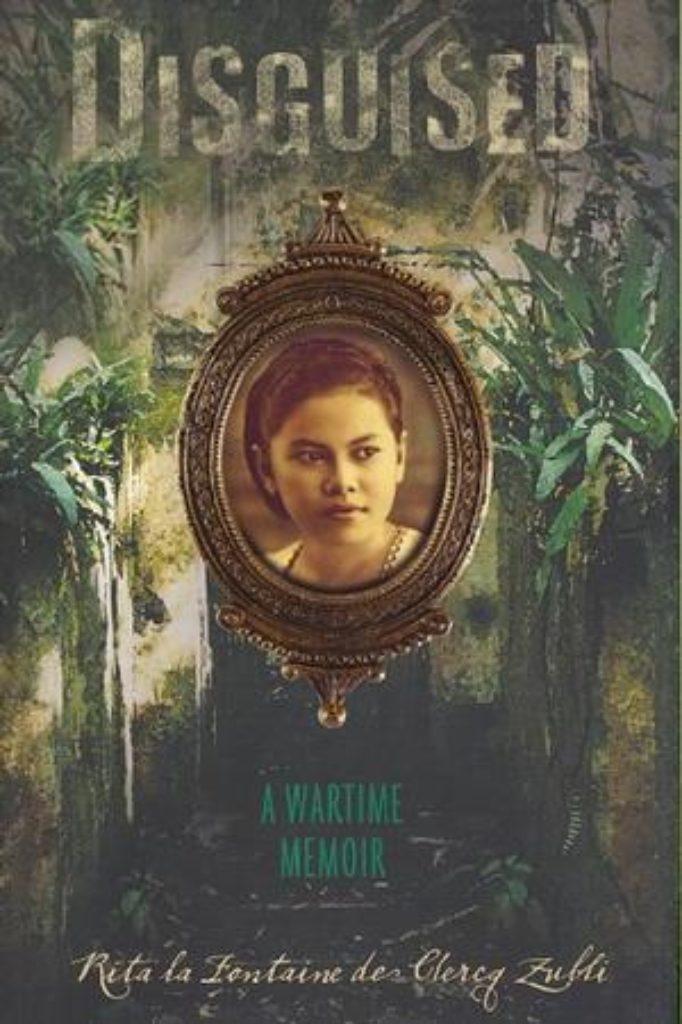This memoir by Rita la Fontaine de Clercq Zubli is published by Candlewick Press, an imprint of Walker Books and is written for kids ages 14 and up. The age range reflects readability and not necessarily content appropriateness.

This memoir by Rita la Fontaine de Clercq Zubli is published by Candlewick Press, an imprint of Walker Books and is written for kids ages 14 and up. The age range reflects readability and not necessarily content appropriateness.
Rita is 12 years old when she and her family are first sent to a Japanese-run prison camp during World War II. Concerned about her safety, Rita’s parents decide to disguise her as a boy. So for over three years and in various POW camps, Rita poses as “Rick.” Despite her circumstances, the Dutch-Indonesian girl uses her intelligence and ingenuity to learn Japanese and English. She soon becomes a well-respected translator for a number of Japanese commanders. As young “Rick” gains the trust of Japanese leaders, she is able to stand up for fellow prisoners and instigate positive changes. In this true account, Rita la Fontaine de Clercy Zubli takes readers into her secret world of danger, loss, personal victories and coming-of-age as a prisoner of war.
Rita and her family members pray to God at various times, both giving thanks and asking for His protection. When Rita feels distressed at seeing her fellow prisoners cavorting with the enemy, she prays that God will forgive them. A nun in Rita’s camp becomes her adviser and confidante.
Rita feels as though her father has telepathically urged her to be courageous, and this gives her comfort. The Japanese erect one of the women’s prison camps on an old burial ground. Many of the POWs become desperately ill, and rumors circulate that angry spirits are causing the sicknesses. The Japanese, unsure of what to believe, relocate the prisoners, who quickly regain their health.
Rita essentially has two mothers, her own mom and her aunt, Tante Suus. Both are her confidantes and offer comfort and wisdom as she faces many adult situations. Tante Suus takes over the mother role after Rita’s mom dies. Rita’s dad, though away in another POW camp for most of the book, shows great pride in Rita and praises her for her efforts to improve her standing with the Japanese officers. Stern Japanese commanders and employers warm up to Rita when they discover her trustworthiness and work ethic. They provide her many privileges unavailable to other POWs. Most of the Japanese captors make some efforts to accommodate and even sometimes befriend their prisoners in spite of the hostilities taking place in the outside world.
Words like God, h— and d–n appear several times. S— appears once in reference to a maggot-infested outhouse. After Rita’s mother miscarries, Tante Suus shows Rita a “jellylike substance floating in blood” and explains that it is a fetus that would have been her brother or sister.
Rita witnesses and experiences situations that repulse and confuse her, starting when she sees her fellow POW women voluntarily attending parties with their Japanese captors. Drinking heavily, the women and officers giggle (and presumably do other things) in curtained booths. Later, one couple has sex in the women’s barracks while others are present. A prisoner who avoids a rape attempt by a guard and a woman pregnant with a guard’s baby are sent away. A Japanese homosexual tries to seduce, then force, “Rick” to have sex with him. Most descriptions are somewhat detailed but stop short of being gratuitous.
If your children have read this book or someone has read it to them, consider these discussion topics:
Would she have had the same opportunities to improve her circumstances?
When Diana (the girl impregnated by a Japanese soldier) returns to camp, she tells Rita she considered suicide many times. But, she adds, “By taking my life, I would only prove to be a coward and unwilling to face my mistakes. So here I am.”
What do you think gave these women hope while living is such horrible circumstances?
It’s interesting to note the often-friendly interactions between the prisoners and the enemy in Disguised.
Why do you think some of the female prisoners went to parties with the Japanese officers?
Which of Rita’s experiences as a captive would have been hardest for you?
Does reading a book like this make you appreciate your freedom?
Parents may want to discuss other historical situations in which people were rounded up and placed in prison camps, such as the Holocaust.
Book reviews cover the content, themes and world-views of fiction books, not their literary merit, and equip parents to decide whether a book is appropriate for their children. A book’s inclusion does not constitute an endorsement by Focus on the Family.
You can request a review of a title you can’t find at [email protected].